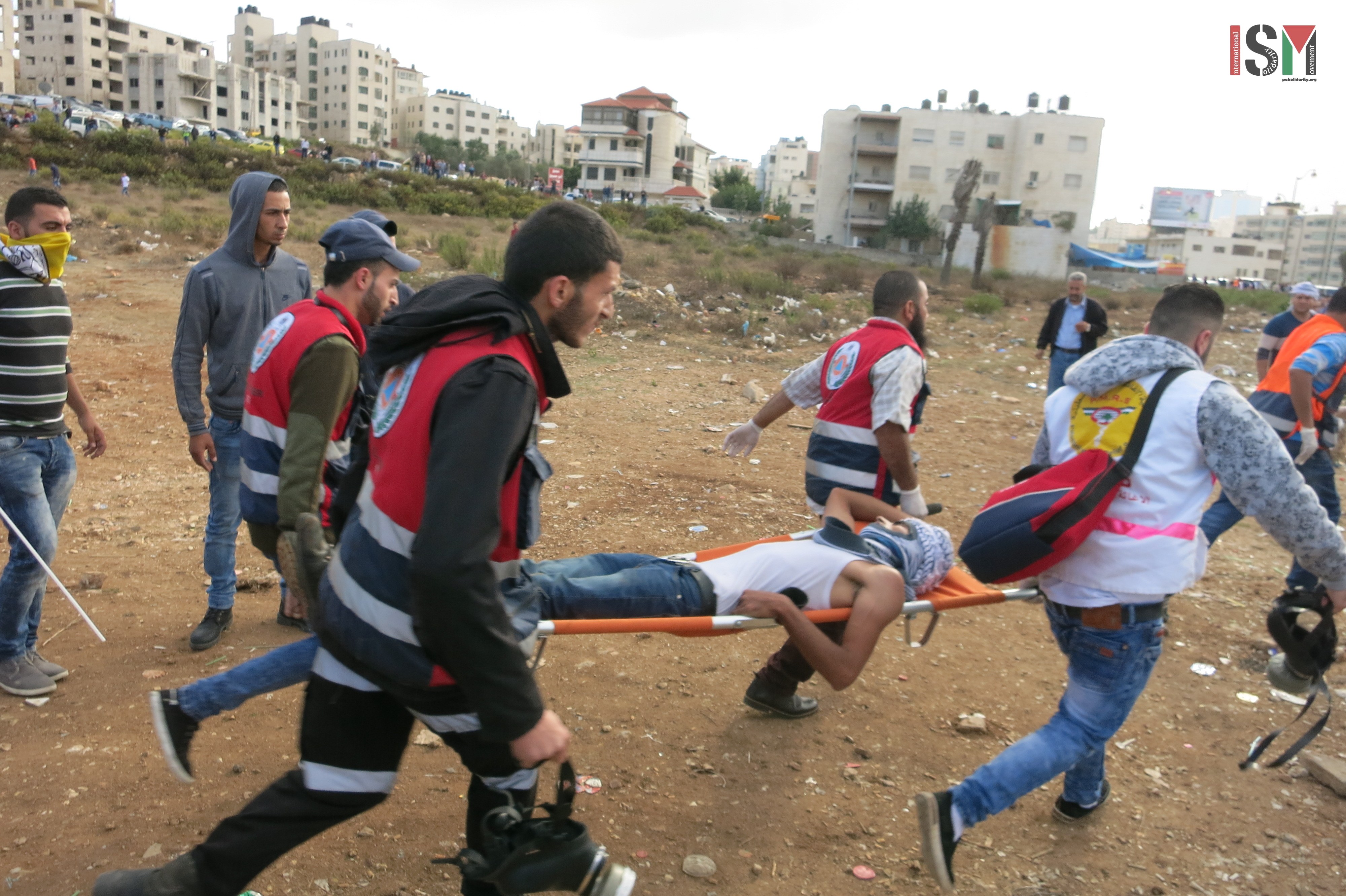Tag: Free Gaza Movement
-
Senseless Israeli violence against demonstrators in Gaza
17th October 2015 | International Solidarity Movement, Gaza team | Gaza, occupied Palestine At yesterday’s demonstrations in Nahel Oz (east of Shijaia) and Erez Border (Beit Hanoun), 2 Palestinians were killed by Israeli forces and almost one hundred were injured. Yahiya Abd al-Qader Farhat, 24 years old, and Mahmoud Hatim Hmeid, 22 years old were…
-
Beit El demonstration under attack by Israeli forces after Martyr laid to rest
10th October 2015 | International Solidarity Movement, Al-Khalil team | Ramallah, occupied Palestine Less than one hour after the Halabi family laid their son, martyr Mohannad al-Halabi, to rest in a cemetery in Ramallah, violent confrontations broke out in the nearby Beit El area. In a continuation of the sharp escalation in violence seen across…
-
Gaza – a bloody Friday
9th October 2015 | International Solidarity Movement, Gaza team | Gaza, occupied Palestine UPDATE – 8pm: 8 martyrs and close to 100 persons injured at today’s demonstration in Shijaia ******* UPDATE – as of 6 pm today: From Osama al Jaro, Public Relations head at Al-Shifa hospital in Gaza: 6 dead, 60 injured, 11 injured…



